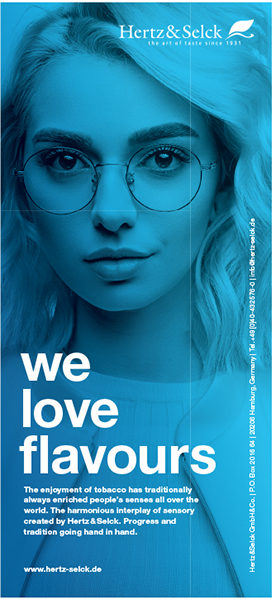Scientific Partnerships for Sustainable Change
- Print Edition Science
- August 1, 2021
- 0
- 1
- 10 minutes read


Options for the tobacco industry to demonstrate its responsible approach
By Stephane Colard
The objective to limit or even to ban tobacco is on the health and regulatory agenda. The so-called endgame strategy is an official goal in countries such as New Zealand1 and Ireland.2 More globally, the World Health Organization (WHO) Framework Convention on Tobacco Control (FCTC) was adopted by the World Health Assembly in 2003 and has been ratified by more than 180 countries to date. This convention is composed of a set of articles to reduce tobacco demand and supply and is seen as an accelerator for sustainable development.3
Even if a total ban seems unrealistic at the moment because politicians know that prohibition leads to criminality, tobacco product manufacturers cannot ignore this objective and its possible consequences on the performance of their tobacco business, which is legal. It appears clearly that such a regulatory agenda will have massive impacts along the whole value chain from the production of the raw material up to sale, and sustainable value creation may well require serious business transformations in the near future.
Article 5.34 of the FCTC recommends to “denormalize and, to the extent possible, regulate activities described as ‘socially responsible’ by the tobacco industry, including but not limited to activities described as ‘corporate social responsibility.’” These elements tend to show that corporate and social responsibility (CSR) initiatives having the sole objective of improving the image of tobacco companies will be combatted and will fail and that the needed tobacco business transformation for ensuring sustainable value creation will not be an easy journey; it will succeed only if CSR initiatives support a genuine ambition and if corresponding impacts are assessed with internationally acknowledged methods.

There are several options for the tobacco industry to demonstrate its responsible approach: compliance with regulations (mandatory); ISO certification or other acknowledged standard(s) (voluntary); disclosure of relevant information to the public and/or the authorities (mandatory or voluntary); and scientific research and publication in peer-reviewed journals (voluntary). The possibility to link company strategies with the United Nations’ Sustainable Development Goals5 is also an opportunity to consider.
The U.N. recognizes that a successful sustainable development agenda requires partnerships between governments, the private sector and civil society. The players of the tobacco and alternative product sectors fully understand that no goal can be achieved alone and that partnerships with multiple stakeholders are necessary to meet sustainable development ambitions. For example, some manufacturers prepare their program for child labor prevention in collaboration with the Eliminating Child Labor in Tobacco-growing Foundation (ECLT) and the International Labor Organization (ILO), and others contribute to WASH6 programs led by UNICEF.
Dialogue and co-development of solutions to the issues faced by business partners, such as suppliers and retailers, are also collaborative approaches for building a sustainable future together. The misinterpretation of article 5.37 of the FCTC tends to forbid any contact with the tobacco industry, and the strategy of denormalization and isolation aims to prohibit partnerships. However, how could one improve the population health without encouraging or collaborating with the industry to develop and sell reduced-risk alternative products? How could one help millions of tobacco farmers worldwide to combat poverty and hunger without working with them on diversification? How could one combat criminal organizations making profits by the illicit trade of tobacco products without collaborating with the legal businesses? More pragmatically, how could one align government and industry testing laboratories without collaborative studies?
Science should step away from politics, and there is no good reason for justifying absence of partnerships or reluctance to build them in total transparency. This would simply delay the implementation of positive changes. The U.N. underlines that partnerships shall be built upon principles and values, and this is why it is crucial for the tobacco industry to make the meaning of the word “sustainability” very clear in the context of partnership.
It does not mean building partnerships for a sustainable development of tobacco businesses; it means building long-term partnerships to support transformation enabling the creation of sustainable shared value. It is essential to make a distinction between partnership types, as there are at least four different levels of engagement and shared responsibility: a partnership to elaborate a program that the manufacturers will own and manage autonomously and independently; a partnership to prepare a consensual program that the partners will own and manage together; a partnership to prepare a consensual program that a third party will manage; and a full delegation to a partner for elaborating and managing a program.
There is always a reason to choose one type of partnership rather than another, depending on the level of interaction, shared responsibility or independence expected. Each type of partnership can be justified and understood for some given situations, but the reporting of partnerships in a public integrated report should be associated with a transparent communication of the governance rules. The analysis of the degree of interaction and interdependence between stakeholders and the related risks is an essential step because a key stakeholder involuntarily ignored and isolated (for example, the community) could impair the success of the joint project; ISO Standards 26000 and 440018 provide useful guidance in this area.
Transparency is a way to avoid misinterpretations or even the worst suspicions that can totally undermine the good intentions of the partners. Governance is a way to avoid unintended consequences of partnerships, for example, a conflict of interest. The need for science-based methods for assessing impacts of actions for transformation should open a field for transparent and productive scientific partnerships, contributing to accelerate the U.N. agenda and to achieve a shared vision of a better world. There are principles and values in science that are universal (common to public and private sectors), such as transparency on assumptions and results, honesty and clarity in interpretations or capacity to replicate experiments.
The process of peer-reviewed publication is also a good protection against junk science; the fact remains that several journals have decided not to publish any work from scientists working for, or from independent scientists working with, the tobacco industry9, peer-reviewed or not. However, it is unfortunate to observe that too many battles of numbers still highlight a lack of consensual methods among specialists, which extends the time spent on discussions and finally postpones the implementation of actions. An example illustrates this point: In 2018, the WHO published a global environmental footprint10 relative to cigarette smoking. The document reported a 2.6-ton carbon dioxide equivalent per million cigarette sticks while British American Tobacco and Philip Morris International reported 0.79 ton and 0.6 ton carbon dioxide equivalent per million sticks, respectively. The WHO was unable to understand why the figures were different but assumed a difference in scope and varying assessment methodologies. This point highlights a need for more transparency in scope and consensus in methodologies even if general publicly available protocols already exist.11
An association like Coresta,12 promoting cooperation, can be the platform that the stakeholders need. It is in a privileged position to initiate new scientific and transparent partnerships and forge a consensus on methodologies for measuring the transformations of tobacco companies, far from political positioning, strategic fragmentation and the isolation of legitimate players.
References:
1 www.health.govt.nz/our-work/preventative-health-wellness/tobacco-control/smokefreeaotearoa- 2025
2 https://health.gov.ie/wp-content/uploads/2014/03/TobaccoFreeIreland.pdf
3 www.who.int/fctc/implementation/publications/who-fctc-undp-wntd-2017.pdf?ua=1
4 www.who.int/fctc/guidelines/article_5_3.pdf
5 www.un.org/sustainabledevelopment/sustainable-development-goals
6 Water, Sanitation and Hygiene
7 www.who.int/fctc/guidelines/article_5_3.pdf
8 ISO 44001 Collaborative business relationship management systems—Requirements and framework
9 See www.tobaccoreporter.com/2016/06/bat-criticizes-science-censorship
10 www.who.int/fctc/publications/WHO-FCTC-Enviroment-Cigarette-smoking.pdf
11 See, for example, the Carbon Disclosure Project www.cdp.net/en and the GHG protocol https://ghgprotocol.org
12 www.coresta.org

